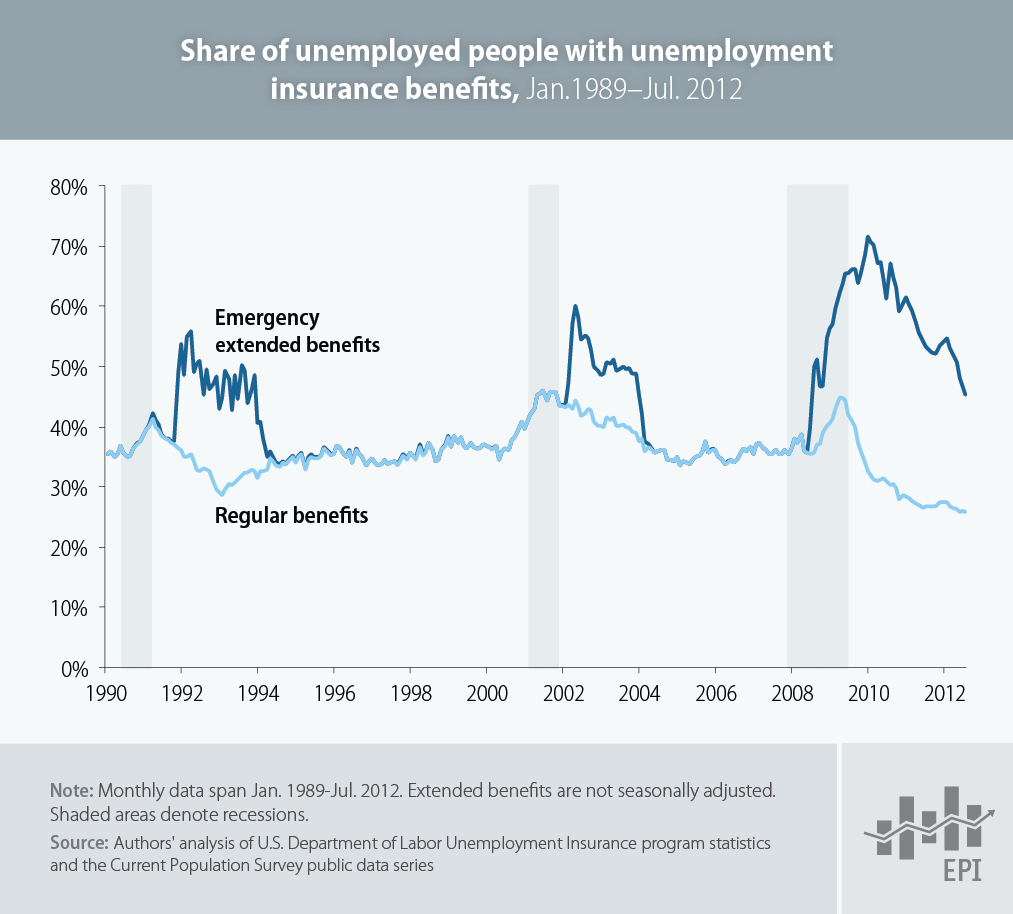A common misunderstanding is that a person who is out of work must be collecting unemployment insurance (UI) benefits to be counted as unemployed. In fact, the definition of unemployment has nothing to do with whether or not the unemployed person is receiving UI. Unemployed jobseekers often are not even eligible for UI. Only workers laid off through no fault of their own are eligible for benefits. New entrants to the labor market (e.g., new graduates) or reentrants after a long absence (e.g., formerly stay-at-home parents) are not eligible. Only employees who have recently worked can collect UI. Even then, they must have worked a minimum amount of time (generally longer than one year) and have received a minimum amount of earnings from their previous employer.
The figure below, from the forthcoming State of Working America, 12th Edition, shows the share of unemployed people receiving UI over time (both regular state benefits and temporary emergency extensions of benefits passed by Congress). Generally, only around 35 percent of the unemployed are eligible for and receive benefits. The share increases, however, during and directly after downturns due to temporary emergency extensions and the fact that during recessions, a higher share of unemployed workers are jobless because they were involuntarily laid off.

Due to the dramatic job loss in the Great Recession, the share of unemployed workers receiving benefits increased substantially; however, it still never exceeded 75 percent and is currently less than 50 percent. Of those currently receiving benefits, many have exhausted regular state benefits and are receiving emergency extended benefits due to the lack of job opportunities in the weak labor market. Only around a quarter of today’s unemployed workers are receiving regular state UI benefits, the lowest share on record. This means that if emergency extended benefits are not included in Congress’ continuing appropriations legislation, only around a quarter of this country’s nearly 13 million unemployed would receive UI, despite the fact that there are more than three unemployed workers for every job opening.
